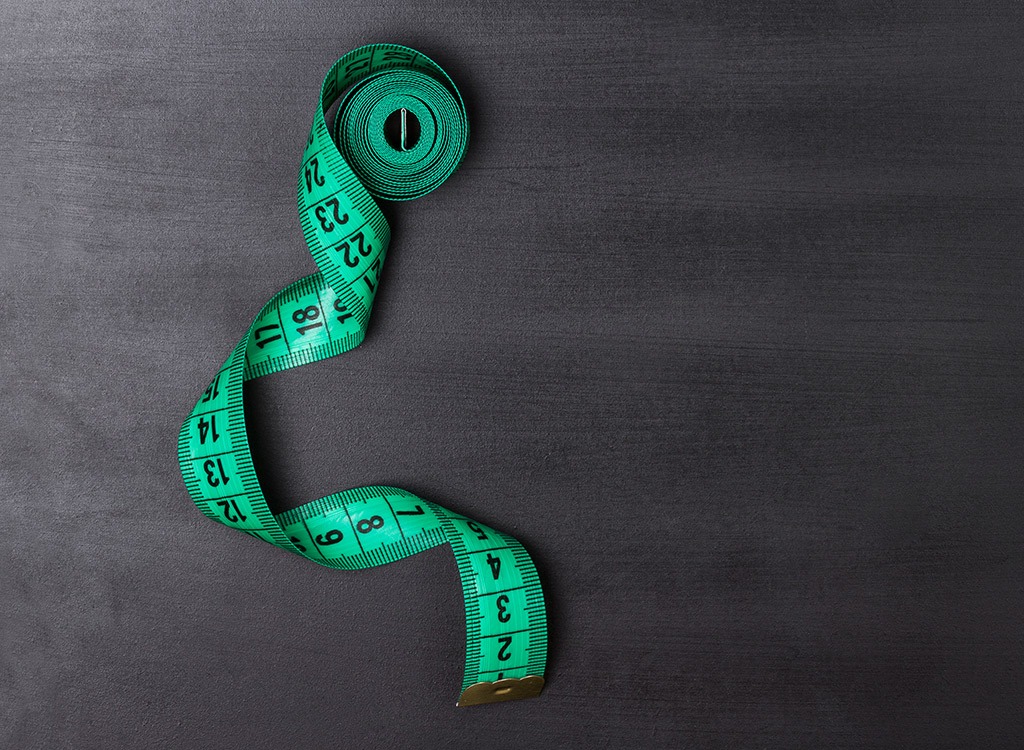How Do Different Health Calculations Measure Up?

More than sixty percent of U.S. adults are overweight or obese. As our nation’s collective waistline continues to grow, so does the pool of strategies and tools health experts use to tell us how we each stack up and how to measure our weight loss success. It sort of makes us miss the good ol’ days, before that tub that calculates your exact body fat by submerging you under water— a time when we could just simply step on a scale and call it a day. But that ship is long gone!
With so many ways to quantify our health, it’s not surprising people are scratching their heads. Many who are considered overweight by one measure are considered a healthy weight by another. It’s maddening. Couple that with the fact that the rock bottom weights of every celebrity having their 15 minutes of fame are splashed across headlines everywhere, and it’s enough to make people throw in the towel on their weight loss efforts. Enough is enough. We want ETNT readers like you to feel confident that you know the best way to gauge your progress!
To cut through the confusion, we spoke with Leah Kaufman, MS, RD, CDN, a New York City-based Dietitian and Lisa Moskovitz, R.D., founder of The NY Nutrition Group. Here, they tell us which tools and strategies are the most accurate measures of health.
Weighing the Value of the Scale.
Many people use it as their primary weight-tracking tool because it’s simple. You step on it, view your weight, wince, and walk away. Simple enough, right? Unfortunately, not really. That number staring back at you is not as straightforward as it seems.
Both experts agree that using a scale is not the most accurate measure of health (phew!). “Muscle mass, water retention, constipation, bloating and hormonal fluctuations can affect the number you see” explains Moskovitz. So stop letting this number set the tone for your whole day! Of course, weight is somewhat important, but it doesn’t tell the whole story— especially if you’re just starting a lifting regimen and adding dense, lean muscle mass to your frame.
Okay. So the Scale May Be Out, but What About BMI?
Is that any better? Body mass index, or BMI, is a measure of body fat based on height and weight, explain the duo. (If you want to calculate your score, the CDC has a tool that can help here.) It may seem pretty accurate because of the fancy calculation involved, but it’s still not a perfect measure because “it doesn’t take into account a person’s body fat, muscle mass, genetics, body frame or gender,” says Moskovitz. While Kaufman agrees, she adds that those who have a BMI of 30 or above should pay attention. “Even if the index is off by a bit, it still may mean you’re obese or at the very least at risk for becoming obese.”
What About Waist-to-hip Ratio? Is That the Way to Go?
Waist-to-hip ratio is calculated by taking the circumference around the hips in inches and dividing it by the circumference of the waist. According to Harvard physicians, the chance of suffering a heart attack or stroke increases once a man’s ratio rises above 0.95. Women face the same risks once their ratio rises above 0.85. Moskovitz adds that diabetes is also a health risk associated with a high ratio, regardless of gender. The pair agrees that waist-to-hip ratio is an important indicator of health because it hones in on abdominal fat (you’ve seen us call it “belly fat” or “visceral fat”) which poses a bigger health threat than fat that’s housed anywhere else on the body.
The bottom line: Even though waist-to-hip ratio is a good measure, one number cannot completely predict your health. Check your waist-to-hip ratio once a month to make sure you’re staying on track toward your goals (whether that be maintaining your ratio or decreasing it), but don’t totally discount other measures either. If your ratio is within a healthy range and either your weight or BMI (not necessary both) fall in a healthy category, too, have peace of mind that your weight is just about right! No matter which one you decide to use as your second measure, though, you’ll need to step on a scale to check in. Cue collective groan. Weigh yourself once a week in the morning before breakfast to get the most accurate measurement. Since weight fluctuates so much based on diet, water retention and hormones, take the number in stride and stop torturing yourself by jumping on the scale every day.








